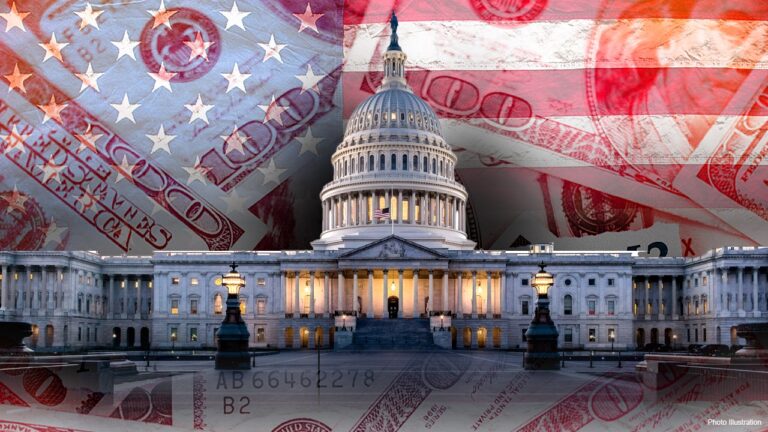
Less than one third have received the promised 8.5 percent triple lock-secured increase on retirement incomes in an injustice that leaves them £200-a-year worse off. It means two in three – as many as eight million of 12 million eligible to receive it – are missing out on bolstered retirement incomes.
Baroness Ros Altmann, former Pensions Minister, writing for the Express today said: “Politicians need to come clean about the problems of the triple lock.
“I am calling for a proper review of how we ensure all pensioners are protected, with fairer treatment for the oldest and poorest, who generally rely more on their state payments.”
This week’s inflation-busting boost means those who get the full new state pension – men born on or after 6 April 1951 and women born on or after 6 April 1953 – will receive £221.20 a week.
But those who retired before this date get a smaller sum under the basic state pension. For a single person this rises to only £169.50 a week, equating to £2,688.40 less a year.
The chasm – which stood at £1,890.20 in 2016 – will keep widening as the triple lock increases payments, campaigners said, as they demanded an immediate probe into the injustice.
They called the sleight of hand a sneaky cash grab as the triple lock is only applied to part of the state pension, rather than all of it, claiming the cash grievance is compounded by the biggest rises being handed to the youngest pensioners, when the oldest pensioners are the poorest.
Many older pensioners already feel hard done by as they get less from the basic state pension than those who retired on the new version.
Dennis Reed, director of the Silver Voices lobby group for OAPs, said: “People who retired before April 2016 feel they are being picked on.
“Every pound is important when you are on the basic State Pension and this sneaky move by the DWP represents daylight robbery.”
The triple lock was under threat as the Government gets a grip on spending, but thanks to the campaigning Daily Express and our army of loyal readers Chancellor Jeremy Hunt resisted temptation to alter the arrangements in last month’s Budget. Instead, from Monday April 8, retirees were handed the full 8.5 percent increase in the state pension.
Mr Hunt has also assured Express readers that the triple lock will survive as part of the Tories’ election manifesto.
The stunning success of this newspaper’s campaign to keep the pensioner perk saw Mr Hunt promise to increase the basic and new state pension each year by whichever is highest of average earnings growth, CPI inflation, or 2.5 percent.
As inflation raged last year, the state pension rose by 10.1 percent in line with inflation from April 2023. The 8.5 percent increase was based on earnings, higher than inflation during the period.
Monday’s boost lifted the new State Pension by £901 to £11,502 a year, for those qualifying for the maximum amount. However, it only increased the basic state pension by just £690 to a maximum £8,813 a year.
But many on the basic state pension get their income topped with payments including Graduated Retirement Benefit, the State Earnings-Related Pension Scheme (Serps) or State Second Pension (S2P). The triple lock uptick does not apply to them with this year’s lower inflationary figure being used instead.
Those who left work before April 6, 2016, will see a chunk of their income rise by just 6.7 percent with some losing as much as £192 over the next 12 months. The reduced sum will be reflected in future settlements, making them poorer for life.
The triple lock also does not apply to means-tested benefit Pension Credit, which tops up pensioner incomes to a minimum £11,343.80 a week, or £17,313.40 for couples.
Joanna Elson, chief executive of Independent Age, called on the Government to set up a cross-party review to ensure everyone has the means to afford essentials.
She said: “With around two million people in later life living in poverty, the Government needs to act.”
READ MORE: New plan to cut state pension age to 63 as ‘we can’t all work into our 70s’
Stephen Lowe, of retirement specialist Just Group, said: “Many feel it is unfair that someone retiring just one day before April 6, 2016, could receive up to £2,688 a year less than someone who retired afterwards.
“This is opening a gap between those on the new state pension, and those who get basic state pension plus some additional pension on top.”
The Department of Work and Pensions said the state pension can be made up of multiple components, but mostly by the basic and new state pension, meaning “from this week the full yearly basic State Pension is worth over £3,700 more, in cash terms, than in 2010”.
A spokesman added: “Pension Credit, a top-up to the poorest and most in-need pensioners, has also been increased by 8.5 percent.
“It is right however that the earnings-related additional state pension component is, like most occupational pension schemes, linked to inflation, in line with most private pensions.”





